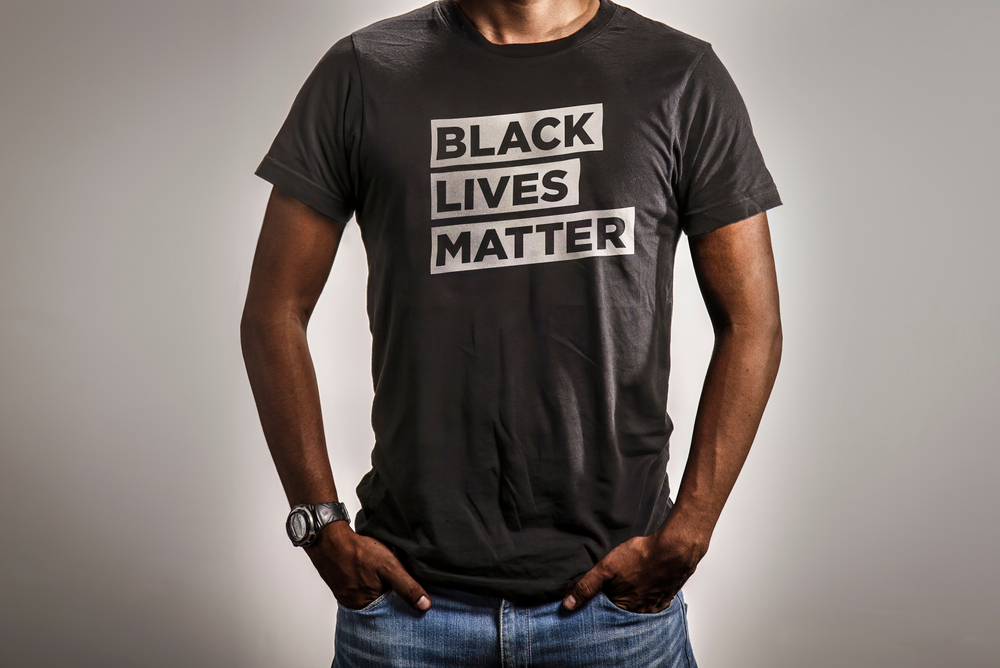The Black Lives Matter (BLM) movement has sparked significant emotion in the past few months. Ever since the NBA season restarted, TV viewers are seeing the phrase emblazoned on the courts and on some players’ jerseys. What you won’t see on TV are the large employers that have faced significant backlash for attempting to prohibit employees from wearing BLM masks and other apparel.
For example, several Whole Foods employees recently initiated a class action lawsuit claiming they’ve been subjected to race discrimination and retaliation for wearing BLM masks and other clothing, even after the company reversed its initial prohibition on the face coverings.
Let’s look at the legal, business, and social considerations in play here.
Constitutional and Legal Tug-of-War
Some employees assert their right to free speech should allow them to wear whatever they please to work, not realizing the First Amendment protects them only from unreasonable restrictions on speech by the government.
Legally, private employers may restrict speech as long as their actions don’t violate other laws. For example, if employees are engaged in concerted activity about the terms and conditions of their employment, the National Labor Relations Act (NLRA) may protect their conduct and speech.
Wearing a BLM mask could be permissible under the NLRA if employees were protesting workplace discrimination, but that’s generally not what we’ve been seeing. Rather, employees want to express their support for the social movement embodied by the BLM slogan.
Therefore, when considering restrictions on the employee dress code, as with many other issues, you must evaluate potential legal, social, and business concerns all at once.
Corporate Commitment to Diversity
Many companies feel the BLM movement aligns with their values and reinforces their commitment to diverse employees, management, customers, and partnerships. Therefore, they’ve decided to let employees express themselves with their apparel. Here are two examples:
- After initially banning any BLM apparel, Starbucks reversed its decision and decided to print 250,000 company-branded BLM shirts. They plan to make the shirts available to all employees, similar to how the company celebrates Pride month.
- Wawa changed its policy banning BLM apparel and now allows employees to wear pins to express support for the movement.
Other Companies Are Struggling
Other companies have struggled with the issue. A Chicago-area Costco employee wore a BLM mask to work but, according to the worker, was told to take it off because it was “political,” “controversial,” and “disruptive.” Eventually, the employee was given permission to wear a mask depicting a raised fist as long as it didn’t include any words.
Some employers are concerned that allowing employees to wear BLM masks or shirts will prompt others to want to wear “Blue Lives Matter,” “White Lives Matter,” or other socially or politically charged apparel, thus inflaming the workplace environment and causing unnecessary and potentially dangerous disruptions.
Additionally, companies are worried about alienating prospective customers who may have differing opinions, especially when businesses are struggling to draw traffic because of the pandemic. Employers that restrict what employees wear should do so in a nondiscriminatory, consistent, and fair manner.
Many employers have decided to impose (or have maintained) a neutral policy prohibiting social or political messaging of any type, mitigating the impact of any allegations they have discriminated against one group or favored another.
While enforcing a neutral policy could appear to be an easy solution, it may prove difficult in practice because customers and the public are sensitive to aligning themselves with (or distancing from) brands based on the companies’ social views.
Bottom Line
As the economy (hopefully) continues to reopen, more employers will be faced with the issue and should weigh the risks of adverse publicity and employee spirits when deciding which approach to implement. Although there are clear legal implications, ultimately, you should view the issue from a business perspective and implement your policy in a thoughtful and consistent manner.
The post Some Employers Struggling with BLM Apparel at Work appeared first on HR Daily Advisor.
